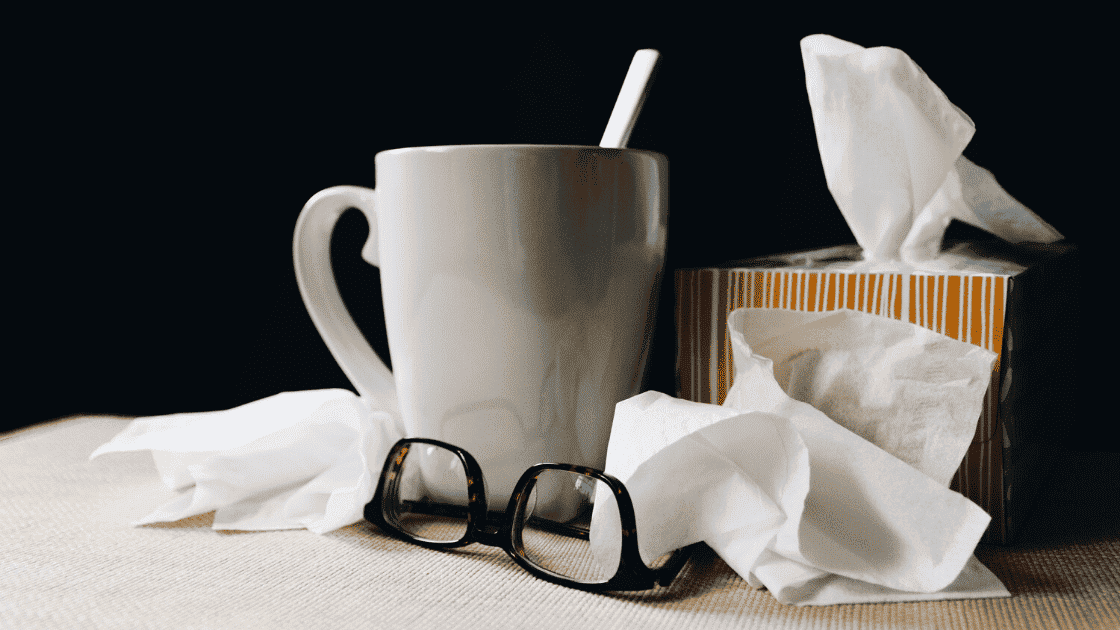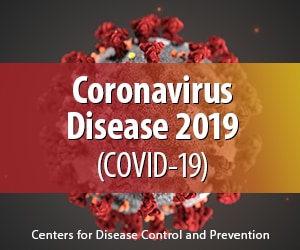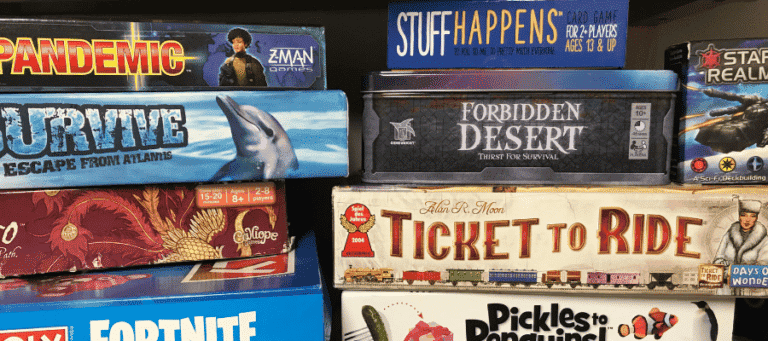How To Talk to Your Kids About Coronavirus

You need to be their go-to source. Coronavirus (COVID-19) news is everywhere, so we need to talk to our kids about trustworthy sources of information. They will take cues from our response to news alerts, event cancellations, disruptions in routine, school closures and more. In this post, we talk about why it’s important to communicate with our kids, and then we offer specific suggestions from experts about how to have these conversations when so much is unknown.
A complete list of helpful and trusted resources is at the bottom of this page–we are updating regularly.
Before I begin, I want to be clear that Mary and I are not alarmists. And we aren’t medical experts. But we are communication professors, and Mary has a journalism background. We understand how families communicate and we teach our college students to search for highly credible and trustworthy information. They better not make a claim about something unless they have strong, reliable evidence to support it. We approach everything we write here in the same way.
We need to have a measured response to accurate and current information from experts and trustworthy sources. People in decision-making positions are relying on the best and brightest in the medical and public health fields, and I know they are far more educated on disease and how it spreads than I am.
Is Coronavirus going to impact my family?
I teach on a campus with nearly 7,000 international students, and a large percentage are from China. I’ve had many Chinese students in class over the years, so it was saddening to read about Coronavirus and realize how it was affecting them–they couldn’t travel home, and parents or family members couldn’t travel to the US for graduation.
But I had no expectation that it would impact my own family in Ohio. I blew off comments from my teenager and dismissed questions from my tween as overreaction.
When the first Apple news alert came across my phone–and my teen’s phone–I started to pay more attention because my boys started talking about it more.
Then my university suspended in-person classes and I had to explain why I was scrambling to get my courses ready to go online.
As I write this, I just learned about a confirmed case in Stark County, Ohio–where my husband and I grew up and where our families still live. My dad’s nursing home called today and they are closed to visitors until the end of April.
So, yeah. It’s here and I need to talk to my kids about it.
Do we really need to talk to our kids about Coronavirus?
A resounding YES. Our kids will find out what’s happening in the world. We do our very best to protect them, as we should, but we also need to be realistic.
Our kids hear about Coronavirus from social media, other apps, friends at school, breaking news across the TV, a news update on the radio, or even a newspaper at a coffee shop. And they may not say a word to us about it.
What does this mean for parents? We have to parent accordingly. It doesn’t matter if we’d rather not talk about it. It doesn’t matter if we don’t know what to say.
From a mom of two kids who is an RN at a research hospital and who has over 20 years of experience: “Our kids are not in the dark about it. They’re talking about it and it’s really important that we weigh in.”
Another mom who is a professor of public health was glad she and her husband opened a dialogue with their kids because she realized her son was afraid and wouldn’t have said anything out loud on his own. Talking about it allowed them to address his concerns and find some answers together.
My younger son is irritated because of the restrictions placed on fans at sporting events. Our high school boys’ basketball team played in the regional semifinals, and we couldn’t go to the game. That’s a minor concern compared to what some people are dealing with, but his perspective is limited and we need to acknowledge and address that. Mary’s son seems stressed about changes to routine and how this disrupts the norm for him when that’s his comfort zone.
How do we navigate parenting in the Digital Age?
We are in uncharted waters here…with this new virus and with parenting in the digital age. It’s hard! We’re overwhelmed with constant information and misinformation. It’s impossible to process and understand everything that we see and hear.
Now think about how our kids must feel! I can’t imagine being a teenager with access to everything I ever wanted to know (or never wanted to know). It’s too much! Even when we are confused or overwhelmed or unsure how to talk about something, we have to be the adults and do it anyway. We need to show our kids how to find accurate information, how damaging misinformation can be, and why we all have a responsibility to the health of our communities.
We have an incredibly important job as parents, and it feels overwhelming to be parenting in the digital age. Every generation faces new challenges, and this is one of ours. I don’t know about you, but I’d like to rise to the occasion and do the best I can with the information available to me.
Where can I get trustworthy information as a parent?
Like most things that Mary and I write about, it all comes down to healthy communication. We have to talk to our kids about what they see and hear on the news. But how? You can search online and find a lot of advice, but that can sometimes lead to information overload. So I gathered suggestions from medical and public health experts and compiled the list below based on what was shared by multiple sources.
- The Centers for Disease Control and Prevention is our nation’s health protection agency and is a trusted authority on Coronavirus. From their general website: “For more than 70 years, we’ve put science into action to help children stay healthy so they can grow and learn, to help families, businesses and communities fight disease and stay strong, and to protect the public’s health….We will use our scientific expertise to bring a new level of preparedness in the US and global health security against current and growing threats, finally eliminate certain diseases, and bring an end to the devastation of epidemics. CDC has a broad mandate and specific directives from Congress for our work, and these priorities do not include all of CDC’s complex, important work.”
- Coronavirus.gov is the CDC’s official website for monitoring Coronavirus. This was the first recommendation from the RN I mentioned earlier as her go-to site for updated daily recommendations and statistics. Below is a screen shot of all the topics covered on the site as of 3/11/20.
- The World Health Organization works to keep the world safe from health emergencies “by identifying, mitigating and managing risks; preventing emergencies and supporting development of tools necessary during outbreaks; detecting and responding to acute health emergencies; and supporting delivery of essential health services in fragile settings.” Their home page has links to rolling updates on coronavirus, public advice, media resources and more.
- World Health Organization Coronavirus Situation Dashboard is an interactive map with global numbers and numbers by country of COVID-19 cases updated on a daily basis.
- Your Local Health Department Websites was recommended by the public health professor for information about what’s happening in your area. The link here will take you to a national directory. You can search for your local health department by state or zip code.
How exactly should we talk about Coronavirus?
Take care of yourself.
Your kids will pay attention to how you respond, so you need to be proactive. Take breaks from constant news coverage, spend time with your family, do something positive for someone else. If you need some help taking breaks, we have 61 ways for you to clear your mind and relax.
Start the conversation. Find out what they know.
Every single source and expert emphasized the importance of open communication with your kids, and the responsibility we have to initiate the conversation.
Ask kids what they know so you can determine how much to share and what needs to be corrected. This also gives you an opportunity to find out where they are getting information and from whom.
Be available. Listen.
When it comes to discussing hard topics, a teacher who has been in the classroom for over 20 years gives advice that takes the pressure off: “You don’t have to have answers. Some situations just don’t have answers. Kids need a safe space to ask questions, to process, to figure out how to be empathetic or not afraid or whatever other emotions they feel. More than anything, I just believe that there is no replacement for human interaction. We are social creatures who need each other in good times and bad.”
Another teacher agrees: “Kids need a safe place to talk about things to help them process their thoughts/feelings. It’s okay if parents don’t completely understand. It’s important for our kids to see how we process our own feelings/thoughts and some things cannot be understood or explained.”
Nobody expects us to be perfect and have all the answers, so let that go and just be there for your kids.

Be honest. Share accurate information.
Advice from the nurse I spoke to–which echoed that of a pediatrician– “Be calm and be prepared. The best thing to do, no matter what the illness, is to wash your hands. Turn the water off and scrub your hands for 20 seconds. Stay home if you’re not well. Don’t send kids to school. Our priority right now is the health of our community. If you don’t feel well, but can function and do your job, stay home anyway. Don’t risk spreading disease to others who are elderly or immunocompromised.”
As a parent, you can guide your kids to credible sources of information. Emphasize the importance of sharing the truth and not perpetuating rumors or stories that aren’t coming from trusted organizations. Share information in a way your kids understand–you know them best.
Talk about news coverage.
As a former reporter, Mary gave me some valuable insight about how news organizations operate. The two goals of the news have always been to entertain or to inform. She told me about news values that media use to determine what gets covered: immediacy (it just happened), prominence (it involves someone famous), significance (it impacts a large number of people), human interest (those stories that pull on the heartstrings), unique or bizarre, proximity (how close it is to us) and currency (it’s a hot topic). Mass media is always evaluating what readers do–what do they buy or read or click on–and so most news organizations respond to the needs or wants of their readers.
When our kids have trouble understanding how and why stories are being covered, this information can provide a starting place for discussion. We won’t dig into it in this post, but this also gives you a good opportunity to talk about media literacy. PBS has a page of resources for teachers, but it would be helpful for parents as well, especially because it focuses on specific current events.
Offer perspective.
As adults, we have experience and perspective that our kids don’t have. in this case, the public health professor said she and her husband wanted to acknowledge that people have died because of this virus. They didn’t want to minimize the situation or present it as nothing to their kids.
But they also said to their kids: “Let’s figure out the truth of the situation. Let’s go to sources we can trust. What is this virus about? How does it spread? Is it similar to the flu or not?”
They’re doing their best to correct scary stuff and misinformation–which is rampant for kids in particular. They’re planning to revisit the conversation regularly and ask what updates their kids have heard. Then they can check their sources together and find out what’s actually happening.
We may not always be able to find the answer, but it’s a starting point.
Help them feel safe.
The nurse emphasizes the importance of helping kids feel safe. Let them know we’ll do whatever we can to keep them safe, which includes supporting and trusting people who are making decisions because they care about the health of our communities.
Take action.
Nobody likes feeling helpless, and teaching kids to take action is a positive and healthy way to cope. Doing something for others can help kids feel connected and give them ways to contribute to the world–two important building blocks of resilient kids.
If you’re not sure where to start, we have a post that includes 71 unexpected ways to volunteer as a family. As more and more people are isolated because of limitations on gatherings and visitations, think about ways you could encourage them.
Check in.
In the coming days and weeks, keep an eye on your kids. Make sure they know you’re always available to listen. Pay attention to the media they’re consuming. If they have questions that you need more help answering, or if you’re uncertain about how they’re processing things, get more help. Our kids are living in a world unlike anything we experienced, so of course we’re going to need help! Don’t be afraid to ask for it.
Additional Resources (We’re updating regularly)
Regularly updated information about Coronavirus
- Coronavirus.gov is the CDC’s official website for monitoring Coronavirus and providing updated stats
- Coronavirus.ohio.gov is the Ohio Department of Health’s official website for Coronavirus. Ohio’s leaders have been impressive and proactive in their response to the pandemic, and have consistently provided timely and transparent information.
General information about Coronavirus
- Centers for Disease Control and Prevention is our nation’s health protection agency and is a trusted authority on Coronavirus.
- The World Health Organization has links to rolling updates on coronavirus, public advice, media resources and more.
Correcting misinformation about Coronavirus
- World Health Organization Coronavirus Myth Busters: Accurate and timely updates from health experts to correct misinformation.
- CDC’s Share Facts About COVID-19: Know the facts about Coronavirus (COVID-19) and help stop the spread of rumors.
Preparing at home
- CDC’s Coronavirus Resources for Your Home: Topics include planning ahead, cleaning recommendations, a checklist to get your household ready, what to do if you’re sick and FAQs for individuals and families.
- The Ohio Department of Health has a great list of checklists covering a wide range of topics: helping the isolated or quarantined, disinfecting when everyday supplies run out, when to contact your doctor if you’re sick, household needs, pet owners and more.
Pets and Coronavirus (because my son asked so it’s on their minds)
Infographics (click on image)
An abridged version of this post was included in the Ohio State University’s “Ohio State Insights” publication: 9 tips for talking to your kids about the coronavirus
- Related Post: Top 10 Things to Do With Tweens & Teens at Home
- FREE printable: full list of Things to Do at Home For Tweens & Teens
- Related Post: Top 10 Board Games for Tweens & Teens
- FREE printable: Outdoor Photo Scavenger Hunt












